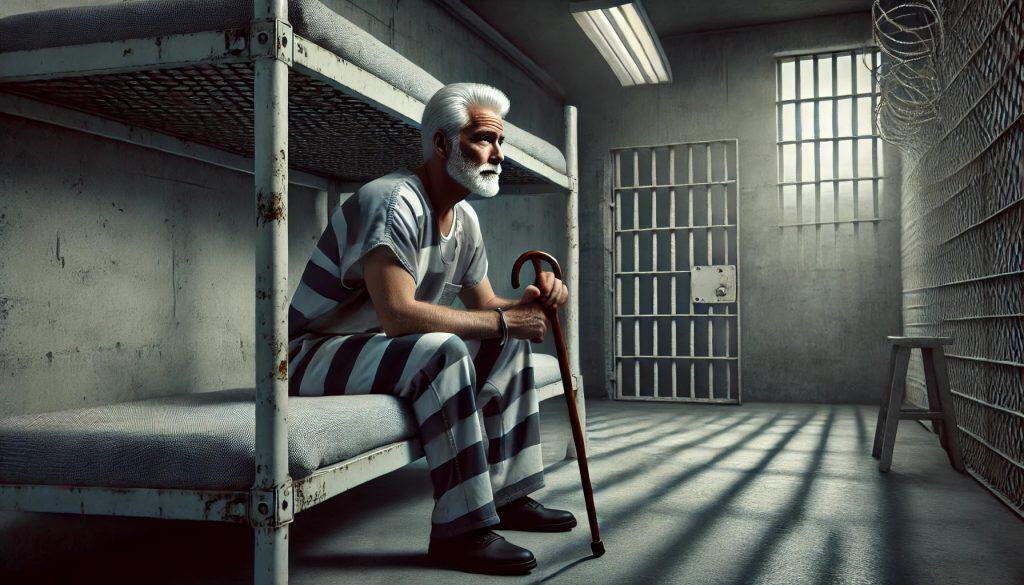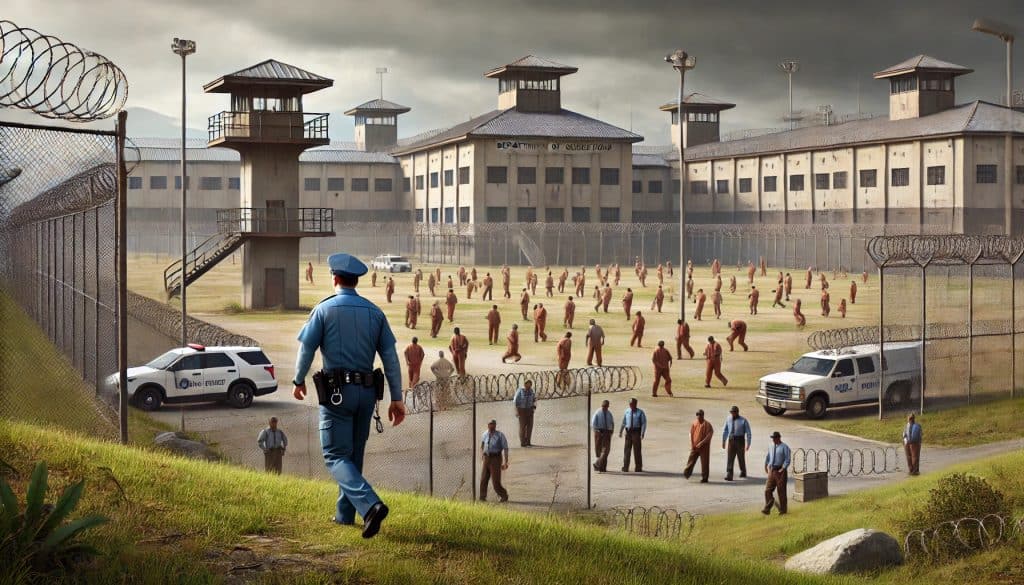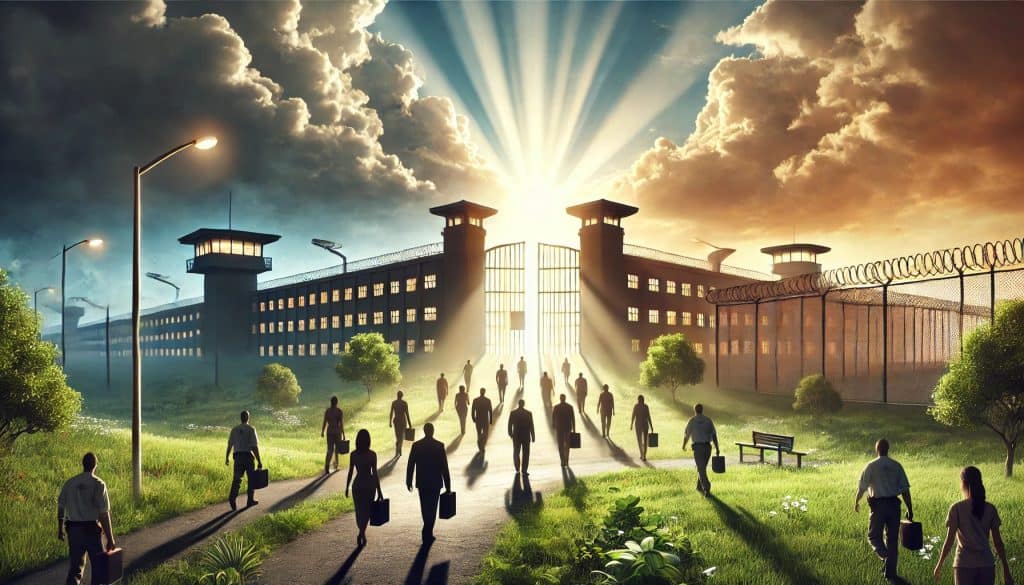Georgia’s prison system is at a critical crossroads. With an aging inmate population driving up healthcare costs, severe understaffing exacerbating poor conditions, and escalating violence, a comprehensive solution is needed. The evidence is clear: reducing Georgia’s prison population, particularly among older, low-risk individuals, offers a practical and humane answer to these challenges.
Georgia’s Aging Prison Population

The data from the Georgia Department of Corrections’ (GDC) reports reveals a stark reality:
- 14.18% of Georgia’s inmates are aged 50 or older, equating to 7,318 individuals.
- 10.25% are aged 60 or older, totaling 5,265 inmates.
This demographic shift reflects broader trends in the U.S., where mandatory minimum sentences and “tough-on-crime” policies have led to longer incarceration periods. These older individuals represent one of the fastest-growing segments of the prison population.
The Healthcare Burden of Aging Inmates

Aging inmates pose significant challenges for Georgia’s correctional system. The average annual cost of incarcerating an older adult is $68,000, compared to $22,000 for a younger individual. This disparity stems from the prevalence of chronic conditions such as heart disease, diabetes, hypertension, and cancer among older inmates. Many of these health problems are worsened by limited access to preventative care and the physically demanding prison environment.
In Georgia’s prisons, this increased healthcare demand strains already limited resources, diverting funds from other critical areas. As staffing shortages worsen, providing adequate medical care becomes even more challenging, endangering both inmates and correctional staff.
Staffing Crisis in Georgia’s Prisons

The U.S. Department of Justice (DOJ) investigation into Georgia’s prison system highlighted severe staffing shortages, with vacancy rates exceeding 50% in many facilities. This understaffing contributes to deteriorating conditions, increased violence, and reduced access to programs and services. As noted by the Prison Policy Initiative, efforts to recruit more staff without addressing systemic issues are unlikely to succeed.
Low Recidivism Among Older Adults
Releasing older inmates poses minimal risk to public safety. Studies indicate that individuals released at age 65 or older have the lowest recidivism rates among all age groups. The most recent government study on recidivism found that older adults are among the least likely to be re-arrested, re-convicted, or reincarcerated. 
Decarceration as a Solution
Reducing Georgia’s prison population, particularly through the release of older, low-risk individuals, addresses multiple challenges simultaneously:
- Financial Relief: By releasing older inmates, Georgia could save millions annually in healthcare costs, reallocating these funds to improve staff compensation, training, and facility safety.
- Reduced Recidivism: Studies consistently show that older individuals have the lowest recidivism rates of any age group. Those released at 60 or older are far less likely to reoffend, making them an ideal group for early release or parole.
- Improved Staffing Conditions: Fewer inmates mean reduced workloads for correctional staff, allowing for safer and more manageable conditions within facilities.
The Path Forward for Georgia
Georgia’s leaders must take bold action to address these intertwined crises. Recommendations include:
- Implementing Decarceration Policies: Focus on early release for older, non-violent offenders who pose minimal risk to public safety.
- Expanding Reentry Support: Ensure that released individuals have access to healthcare, housing, and job training to facilitate successful reintegration into society.
- Reevaluating Sentencing Policies: Reduce the use of long-term incarceration for non-violent offenses and emphasize alternatives such as community supervision and treatment programs.
A Humane and Practical Solution
Georgia’s prisons are under immense strain, and continuing the status quo is unsustainable. The evidence is overwhelming: decarceration is not just a moral imperative but a practical necessity. By addressing the root causes of its prison crisis—an aging population, soaring healthcare costs, and excessive incarceration rates—Georgia can create a more just and effective correctional system.
The time to act is now. Policymakers must prioritize decarceration, both as a solution to the staffing and healthcare crises and as a step toward a fairer and more equitable justice system.

3 thoughts on “Decarceration: The Key to Solving Georgia’s Prison Staffing Crisis and Healthcare Burden”